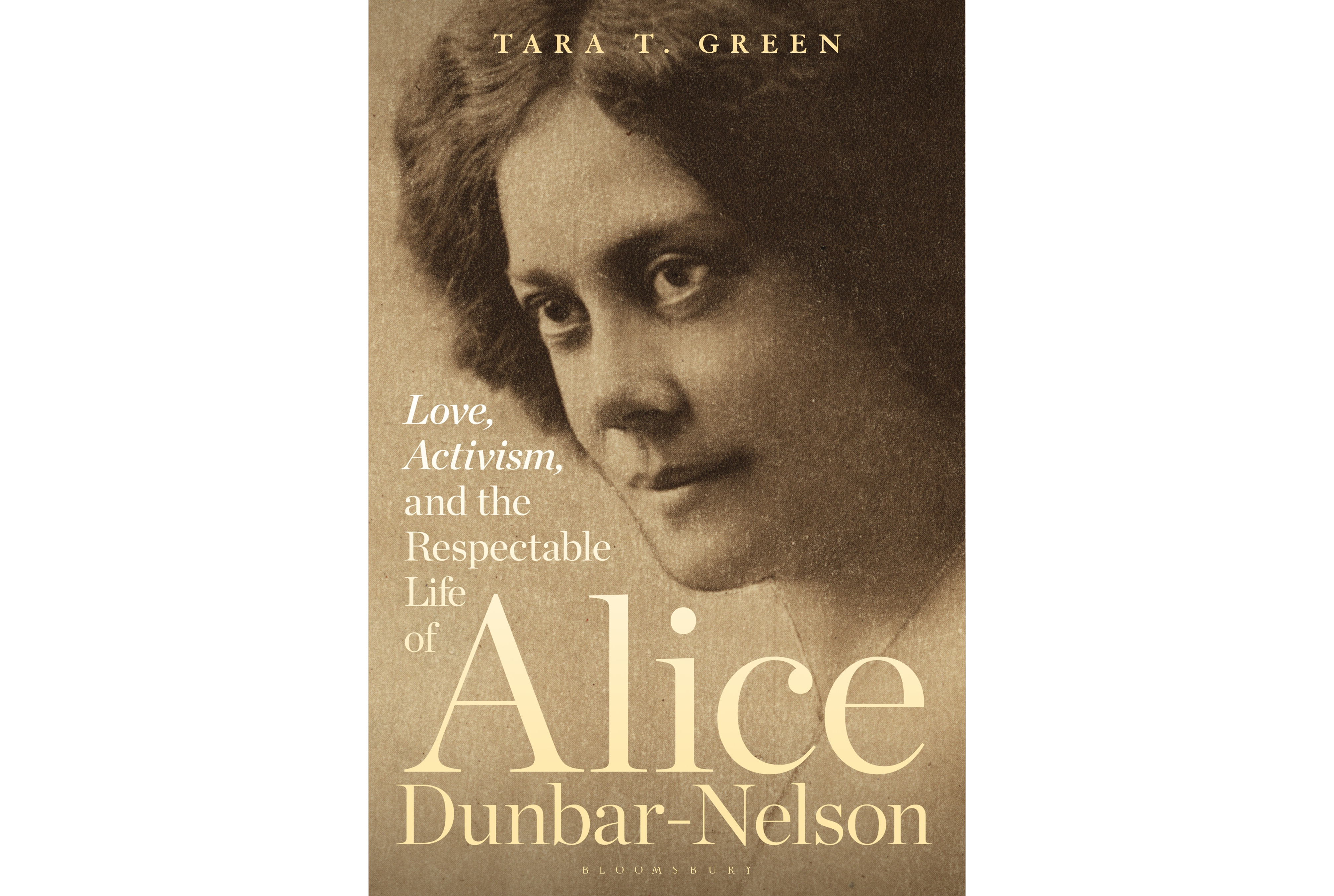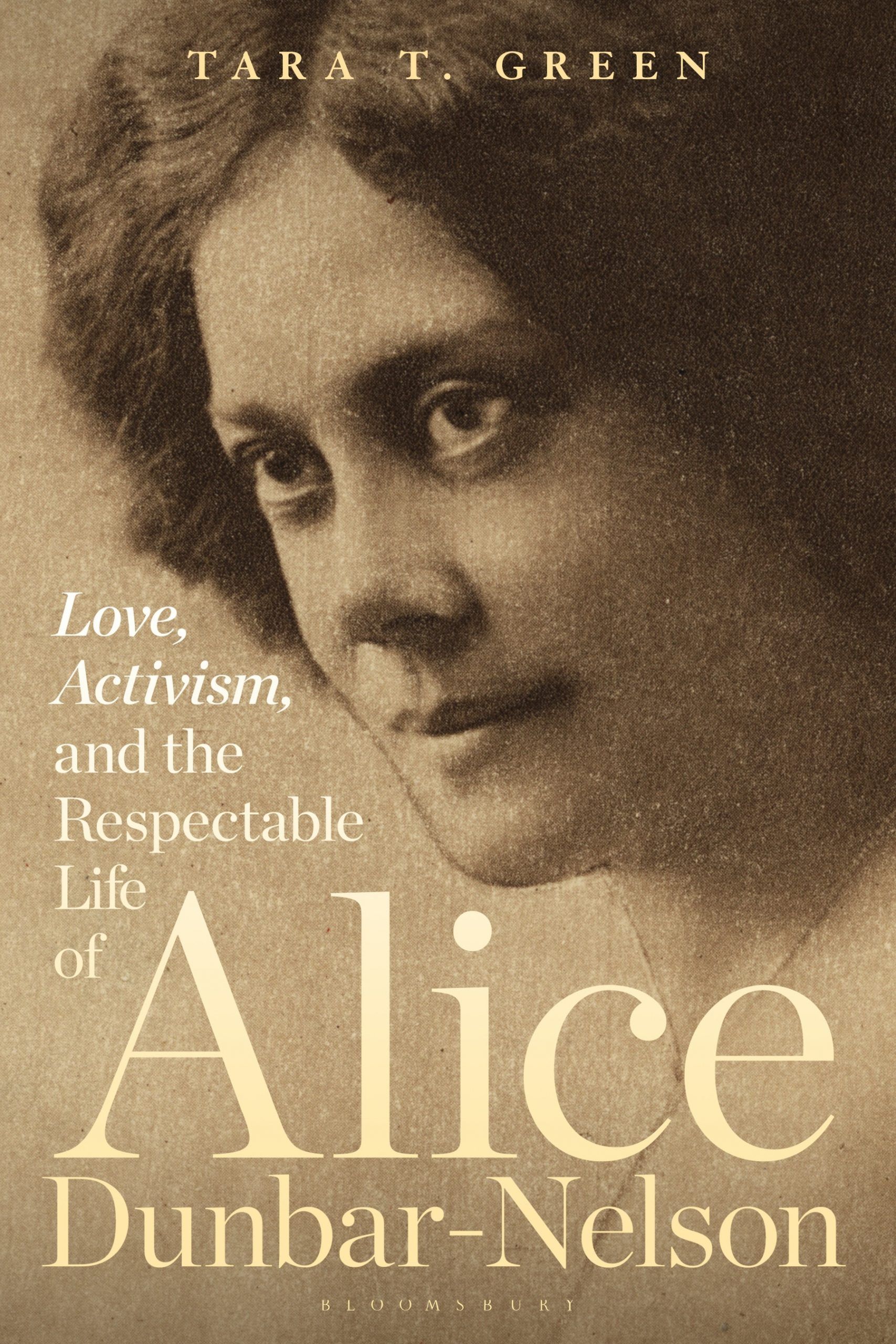
“This definitive look at a remarkable figure delivers the goods.” – Publishers Weekly, starred review
Green’s new book, published by Bloomsbury Academic, has received glowing reviews from Booklist, Pulitzer Prize winner Jericho Brown, Ms. Magazine, and more.
“I am of the latter class … White enough to pass for white, but with a darker family background, a real love for the mother race, and no desire to be numbered among the white race.”
These sentences from Alice Dunbar-Nelson’s essay “Brass Ankles Speaks” are also the opening lines of a groundbreaking new book by Dr. Tara T. Green that examines the life of Dunbar-Nelson.
“Love, Activism, and the Respectable Life of Alice Dunbar-Nelson” is an in-depth look at a woman known as a poet, short-story writer, essayist, and activist – and perhaps even better known for her short marriage to Paul Laurence Dunbar, one of America’s first influential Black poets.
Dunbar-Nelson was part of the Harlem Renaissance and movements against lynching and for racial equity and a woman’s right to vote. And she did all of this, Green says, while attempting to toe the line of respectability demanded by the growing Black middle-class society of 19th-century America.
“Her gender, race, and sexuality never fit neatly into societal roles,” says Green. “She was a woman who tested the boundaries in a variety of ways.”
Green discovered the writer as an undergraduate – both she and her subject of interest attended the same college and grew up in the New Orleans area. But reading Dunbar-Nelson’s works as a student offered Green a new view: “She transported me to another place, another time, that I didn’t know. She challenged my imagination.”
Fast forward to 2010, and Green, a professor in UNCG’s programs for African American and African Diaspora Studies and Women’s, Gender, and Sexuality Studies, began examining Dunbar-Nelson’s papers and diaries housed at the University of Delaware.
“I was sent. All this material, and nobody had written her biography. How was this possible? I felt an obligation to right a wrong. Knowing her background and my background, if I wasn’t going to write this, then who would?”
The result – which also reflects materials Green found in early newspaper databases, Howard University’s library, the Library of Congress, the Atlanta Center, and the Amistad Research Center – affords readers a look at a very different private life behind the public facade.
With a likely-White father she didn’t know, Alice Ruth Moore did not fit easily into prescribed roles in Black or White society.
In a world where divorce was rare, same-sex relationships were illegal, and motherhood was expected, the author married three times, conducted relationships with women, had no children of her own, and worked as a teacher and administrator. During her famed marriage to Paul Laurence Dunbar, she was physically abused.
“Like so many of us today, she lived with secrets,” Green says. “She was a Black woman who persevered, and she earned a certain measure of acceptability.” At the same time, in many ways she lived her life on her own terms.
“I hope that others will find her life an inspiration. She survived lots of trauma, but she also had moments of happiness. She was a Black woman doing what Black women do – surviving and wanting to be accepted.”

